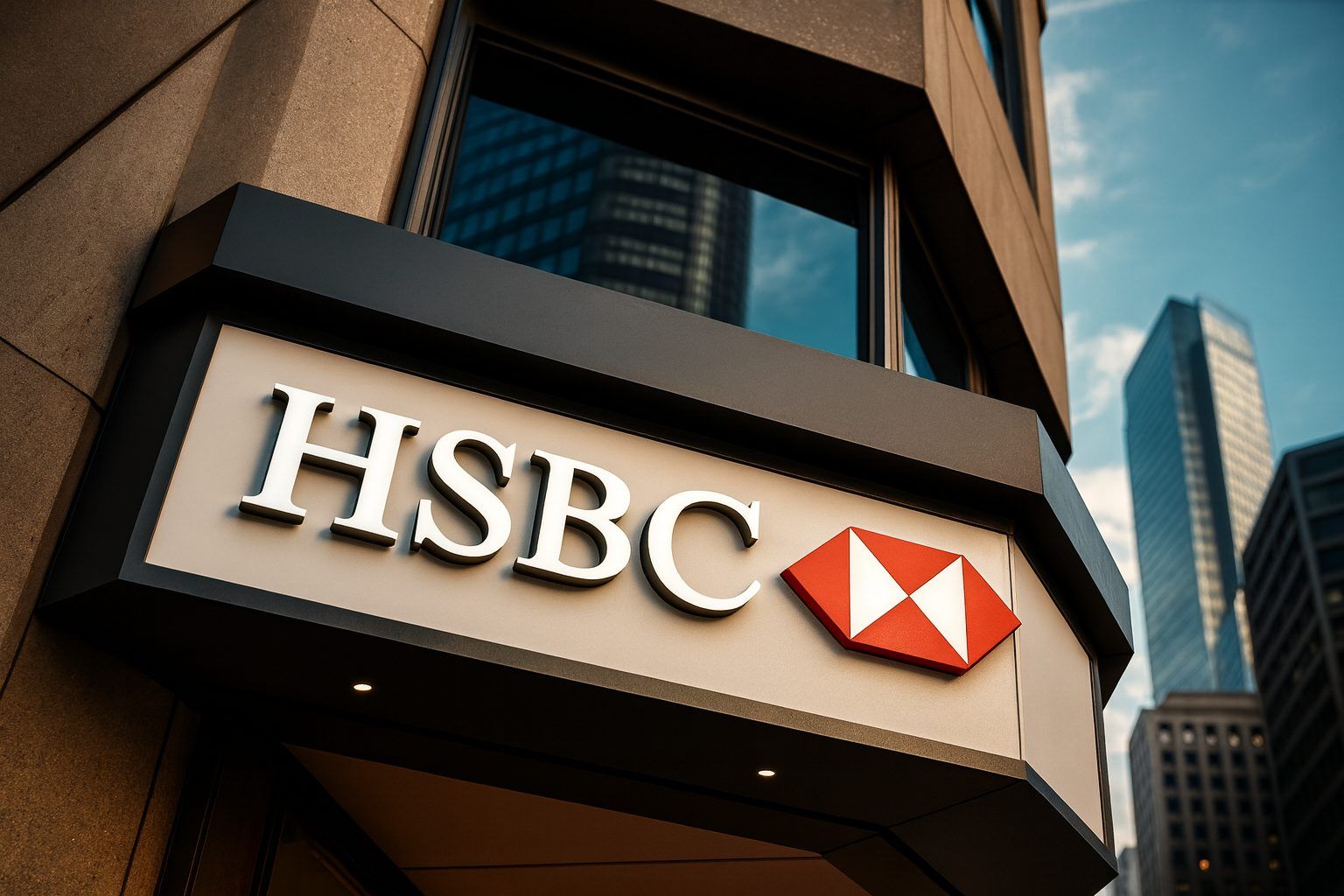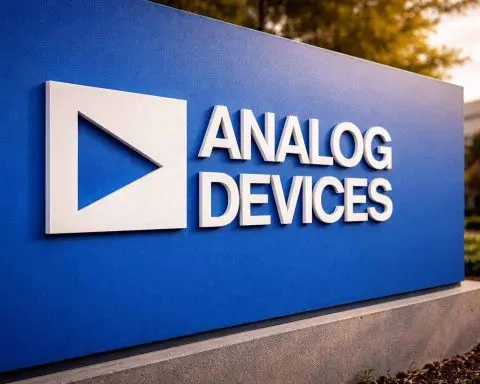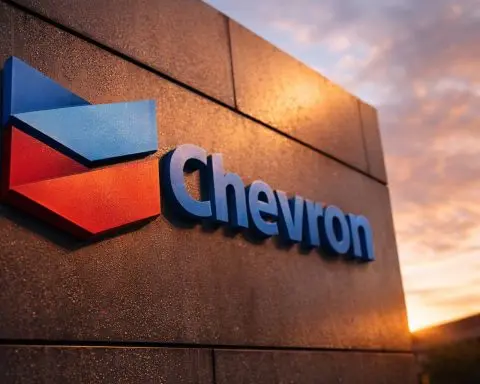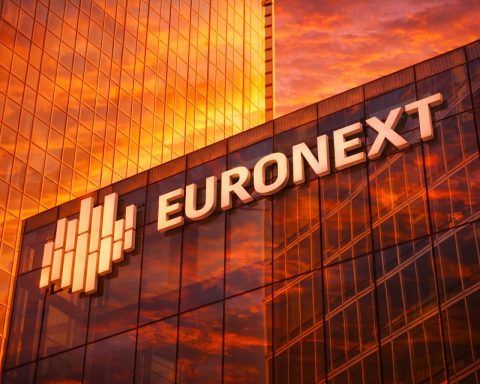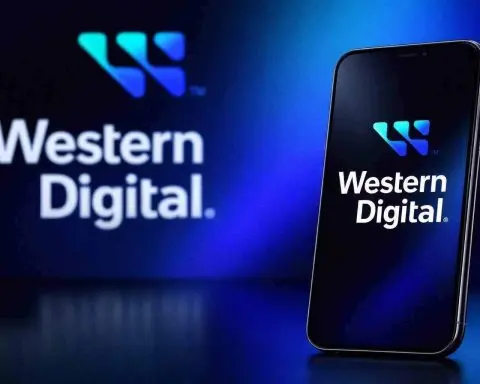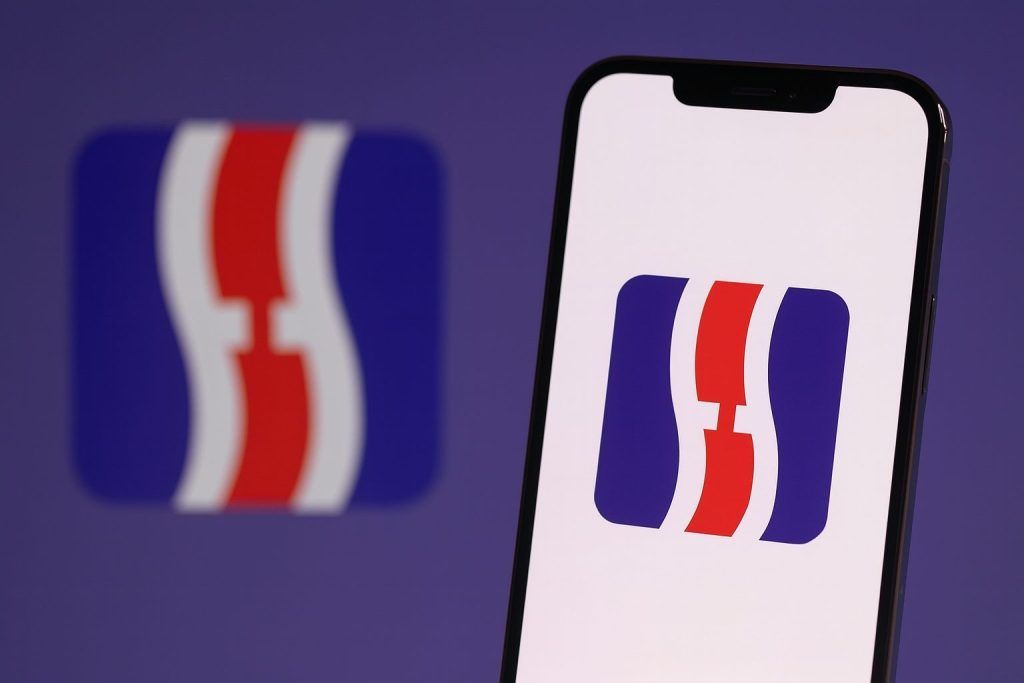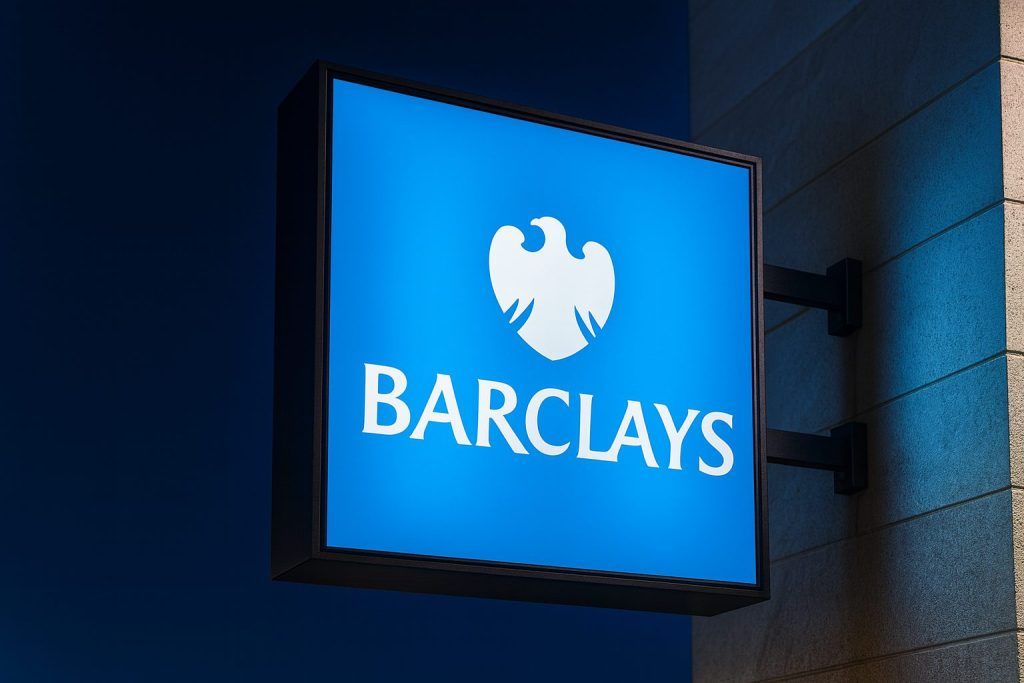London / Hong Kong – 27 November 2025
HSBC Holdings plc (LON: HSBA) is back in the spotlight today as the bank pushes ahead with the proposed privatisation of Hang Seng Bank in Hong Kong, moves to complete the sale of its Bahrain retail franchise, and continues to trade close to its 52‑week high on the London Stock Exchange.Investegate+2HSBC Bahrain+2
Below is a roundup of today’s most relevant HSBC news and what it means for HSBA shareholders.
- Hang Seng Bank privatisation: HSBC issues a formal monthly update confirming the scheme timetable, with the key Scheme Document now expected on or before 17 December 2025.Investegate
- Takeovers Code relief: Hong Kong’s Takeovers Executive grants HSBC a series of consents allowing normal trading and hedging activities in Hang Seng Bank securities during the offer period.Investegate
- Middle East reshaping: The Central Bank of Bahrain has approved HSBC’s plan to transfer its Bahrain retail banking business to Bank of Bahrain and Kuwait (BBK), with completion scheduled for today, 27 November 2025.HSBC Bahrain
- Market & valuation: HSBA shares closed at 1,063p today (‑0.13%), up about 45% over the past year and near their 52‑week high, sparking fresh debate over whether the stock is now over‑ or undervalued.Investing.com+1
Hang Seng Bank privatisation: scheme document due by mid‑December
The most material corporate development for HSBC shareholders today is the monthly update on the proposed privatisation of Hang Seng Bank Limited (HSB), issued as a joint announcement by HSBC Holdings, HSBC’s Hong Kong subsidiary and Hang Seng Bank.Investegate+1
Key points from the 27 November filing:
- HSBC and Hang Seng are finalising the Scheme Document for the proposed privatisation, to be effected by a scheme of arrangement under Hong Kong’s Companies Ordinance.
- The Scheme Document – which will set out the details of the proposal, terms and full timetable – is expected to be despatched on or before 17 December 2025, subject to directions from the Hong Kong High Court to convene the shareholder court meeting.Investegate
- The transaction includes the proposed withdrawal of Hang Seng Bank’s listing from the Hong Kong Stock Exchange once the scheme becomes effective.Investegate
- Both HSBC and Hang Seng again warn investors to exercise caution, stressing that the proposal remains conditional and will only go ahead if all scheme conditions are satisfied or waived by the long‑stop date.Investegate
For context, HSBC previously indicated that taking its Hong Kong subsidiary fully private is a US$13.6bn transaction and would trim around 125 basis points from the Group’s CET1 capital ratio, while simplifying its regional structure and giving it full access to Hang Seng’s earnings.Reuters+1
Today’s update doesn’t change the economics, but it confirms the deal is progressing on schedule and signals that investors should now watch for the Scheme Document and subsequent court and shareholder meetings.
Takeovers Code consents: keeping HSBC’s markets business running
Alongside the timetable update, HSBC also released a second RNS today: “Grant of Relevant Consents under HK Takeovers Code”.Investegate+1
During a takeover offer, the Hong Kong Takeovers Code restricts how the offeror and its concert parties can deal in the target’s securities. That can be tricky for a universal bank like HSBC, which routinely touches Hang Seng Bank shares through structured products, ETFs and custody operations.
In the announcement, HSBC details a set of consents granted by the Takeovers Executive that allow the Group to continue a range of “ordinary course” activities involving Hang Seng Bank securities without breaching Takeovers Code rules or impacting the minimum offer price:
- Structured products and hedging: HSBC can continue to create, roll and unwind structured products referencing Hang Seng Bank shares (subject to size limits), and hedge them, without each sale requiring 24‑hour prior public notice.Investegate
- Agency securities lending: When HSBC has to acquire Hang Seng Bank shares to honour indemnities to clients in its agency lending programme, those purchases will not reset the minimum offer consideration.Investegate
- ETF market‑making: Dealings in Hang Seng Bank shares as an authorised participant or market maker for ETFs that include the stock are carved out from rules that would otherwise affect the offer price or force pre‑trade disclosure.Investegate
- Index‑tracking funds and trustee activities: Similar relief applies to passive index funds HSBC manages and to sales of Hang Seng Bank shares made by HSBC acting as executor or discretionary trustee of estates.Investegate
Practically, these consents mean HSBC’s securities, ETF and fiduciary businesses can continue to function normally while the Hang Seng Bank privatisation is live, reducing operational risk and minimising disruption for institutional clients.
Bahrain retail exit: local consumer banking to move to BBK
Outside Asia, HSBC is also reshaping its Middle East footprint. On its HSBC Bahrain site, the bank confirms that the Central Bank of Bahrain has approved the transfer of HSBC’s retail banking business in Bahrain to Bank of Bahrain and Kuwait (BBK).HSBC Bahrain
The notice states that:
- The transaction will be completed on 27 November 2025.
- HSBC has received the necessary regulatory approvals from the Bahraini authorities.
- Existing customers are told there is no immediate action required, and that HSBC is working closely with BBK to minimise disruption and will provide further updates in due course.HSBC Bahrain
The move aligns with HSBC’s broader strategy of exiting smaller retail franchises to focus capital on scale markets and on corporate, institutional and wealth businesses, while maintaining regional wholesale connectivity.
HSBA share price today: modest dip after strong 12‑month rally
In London, HSBA shares ended today at 1,063p, having opened at 1,061p and traded between 1,059p and 1,066p during the session – a 0.13% decline on the day.Investing.com
Over a longer horizon, the stock’s move is more dramatic:
- 12‑month performance: HSBA has gained roughly 45% over the past year, with a 52‑week trading range of 698.70p to 1,126.00p.Investing.com+1
- Recent months: Data for 2025 show the share price climbing from the high‑800s in early spring to above 1,100p in November, reflecting improved profitability, rising dividends and optimism around the Hang Seng transaction.Digrin+1
In other words, today’s flat performance comes against a backdrop of a powerful year‑long rally, which is why valuation calls on the stock are becoming more contested.
Valuation debate: is HSBC stock now cheap or expensive?
A fresh valuation deep‑dive published today by Simply Wall St asks whether HSBC is still a bargain “after a 53% stock rally and Asia expansion news.”Simply Wall St
Highlights from that analysis:
- HSBA is up 1.6% over the past week, 6.0% month‑to‑date and 53.4% over the last year, according to the outlet’s data.Simply Wall St
- Using an “Excess Returns” model, they estimate an intrinsic value of £16.83 per share, implying the stock trades at roughly a 37% discount to fair value – hence, “undervalued” on that metric.Simply Wall St
- On more traditional measures, HSBC’s P/E ratio of about 14.6x is higher than both the UK banks sector average (~10.4x) and its peer group (~11.5x), leading the same analysis to flag the shares as “overvalued” on a pure multiple basis.Simply Wall St
Other analysts are also turning more constructive. On 20 November, Erste Group upgraded HSBC from Hold to Buy, citing solid third‑quarter results, controlled cost growth (targeting ~3% by 2025) and an ambition to deliver at least 15% return on equity.GuruFocus+1
The upshot: valuation views are split. Fundamental cash‑flow models often point to upside, while relative valuation and the stock’s proximity to multi‑year highs encourage caution.
Strategic backdrop: strong Q3 results, heavy legal provisions
Today’s announcements sit against a robust but complex Q3 2025 backdrop:
- HSBC reported Q3 2025 profit before tax of US$7.3bn on US$17.8bn of revenue, with a third‑quarter dividend of US$0.10 per share.HSBC
- Excluding notable items, profit before tax grew 3% year‑on‑year, and the bank upgraded guidance for 2025 RoTE (return on tangible equity) to “mid‑teens or better”, with banking net interest income now expected at US$43bn or more for the year.HSBC+1
- The headline profit was held back by US$1.4bn of legal provisions, including around US$1.1bn related to developments in a long‑running Luxembourg claim tied to the Madoff securities fraud.HSBC+1
Despite the hit, HSBC’s CET1 ratio of 14.5% remains within its target range, even as it absorbs the expected capital impact of the Hang Seng Bank deal.HSBC+1
Taken together, the Q3 numbers and today’s structural moves (Hang Seng and Bahrain) reinforce the bank’s narrative of simplifying the group, freeing up capital and doubling down on core Asia‑centric and wealth businesses.
Research engine in the headlines: AI, OpenAI and Saudi‑Egypt trade
While today’s regulatory filings directly affect HSBC’s own balance sheet, the bank’s global research arm is also driving headlines in broader markets this week:
- In a widely cited report, HSBC Global Investment Research estimates that OpenAI may need around US$207bn of fresh financing by 2030 to fund its contracted cloud compute – a funding gap that could have significant implications for partners such as Oracle, Microsoft, Amazon, Nvidia and AMD.The Register+1
- HSBC strategists also forecast that the S&P 500 could reach 7,500 by December 2026, roughly 12% above current levels, arguing that AI‑related capex will continue to drive an extended equity rally, even as they warn of a “K‑shaped” economy with uneven consumer strength.The Economic Times
- Regionally, new HSBC survey data released via Zawya/Refinitiv today show that 86–90% of Egyptian businesses expect to significantly increase trade and investment with Saudi Arabia over the next five years, underscoring the bank’s bullish stance on Middle East corridors linked to Saudi’s Vision 2030.TradingView
These pieces don’t change HSBC’s own earnings immediately, but they reinforce the bank’s role as a key voice in the global AI, macro and trade debates, which in turn supports its positioning with institutional clients.
Middle‑office and people news
Access to the full article is blocked behind a security layer, but Citywire’s teasers today report that the head of family office coverage for Global South Asia within HSBC Global Private Banking has exited the firm. The executive reportedly oversaw ultra‑high‑net‑worth non‑resident Indian (NRI) clients across India, MENA, wider Asia and Europe – an important growth demographic for the bank’s wealth arm.Citywire
While not market‑moving on its own, such moves are worth watching in the context of HSBC’s push to grow fee‑rich wealth and private banking revenues alongside traditional lending.
What to watch next for HSBA investors
For those tracking HSBC Holdings plc and HSBA shares, the key near‑term milestones following today’s news are:
- Publication of the Hang Seng Scheme Document
- Exact terms, independent valuations, and the timetable for court and shareholder approvals will be critical for assessing execution risk and capital impacts.Investegate+1
- Market reaction to Bahrain exit
- Any further disclosures on financial terms or gains/losses from the transfer of the Bahrain retail book to BBK, and whether more small‑scale retail exits follow in other markets.HSBC Bahrain
- Capital and buyback capacity
- With Q3 provisions and the HSB deal impacting CET1, investors will focus on how much room remains for dividends and share buybacks under HSBC’s 50% payout policy.HSBC+1
- Legal overhang from the Madoff case
- Progress of HSBC’s planned further appeals in Luxembourg and any updates to the US$1.1bn provision currently booked.Reuters+1
- Macro research influence
- Whether HSBC’s high‑profile AI and OpenAI research views translate into higher institutional client activity – and whether they prove accurate as AI‑linked markets evolve.The Register+1
This article is based on publicly available information as of 27 November 2025 and is provided for informational purposes only. It does not constitute investment advice or a recommendation to buy or sell any security. Always conduct your own research or consult a qualified financial adviser before making investment decisions.
